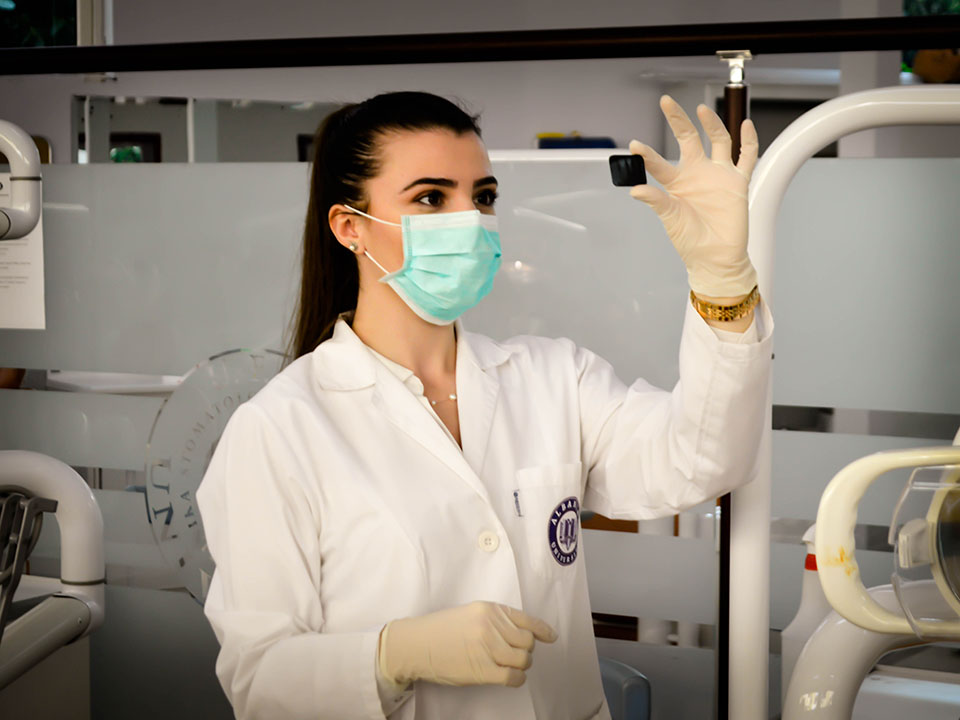Medical assisting can be a very rewarding career for those who are genuinely passionate about medicine and helping people. Before training to become a medical assistant, though, it’s important to understand what the career will entail. Being informed will allow you to go in feeling more confident and prepared.
Doctors would find it difficult to run their practices smoothly if it wasn’t for the help of medical assistants. Medical assistants not only help doctors and nurses to treat patients, but they also help keep medical offices running smoothly. They perform clerical duties, prepare and clean instruments, and provide assistance to patients during appointments. They can work in hospitals, physicians’ offices, outpatients clinics, and other healthcare facilities.
Many medical assistants have at least a diploma, and some go on to pursue higher education in hopes of advancing their career. The job outlook for medical assistants is on the rise. According to the U.S. Bureau of Labor Statistics, employment for medical assistants is projected to grow 19 percent from 2019 to 2029. This is much faster than the average for all occupations, and it will continue to go up as the baby-boom population will increase the demand for preventive medical services.
A typical day in the life of a medical assistant depends on what type of clinic they work in and what department they are placed in. Their duties will be split between admin work and patient care. Some of their administrative tasks and responsibilities include doing paperwork, billing, handling phone calls, scheduling appointments, charting, etc.
The typical day for a medical assistant starts at eight or nine in the morning. There are also medical assistants who work in hospitals or 24-hour facilities, and they might work night shifts. A lot of them will arrive to work a little bit early to start prepping for their appointments. They will usually start off the day by logging into their medical record system to check their appointments for the day. They will then prepare charts, handle appointments, sort through all of the patients’ medical records, prepare and stock the rooms as needed, review the daily patient schedule with the physician, respond to emails, and fill out any paperwork needed for the day, such as health checks and surgical permission forms. All of these tasks are important because they help with diagnosing patients and coming up with treatment plans.
Medical assistants work hand in hand with doctors and nurses, so they will constantly check in with each other throughout the day to make sure that everything is flowing smoothly. When patients come in, medical assistants will greet them and take them from the waiting room to the doctor’s office where they will use the computer system to enter and verify patients’ basic information, such as medical history, medications, changes in health, allergies, etc. Next, they will take vital signs and blood pressure. If the patient is there just for a simple check up, then the check-in process won’t be as extensive. However, if the patient is there for an operation, then the medical assistant might have to take extra steps to prepare them for the operation. This might include taking samples for the lab, x-rays, or injections. Their main focus is getting patients in and out of the office in a timely manner. During the appointments, they will still be in the examination room helping the doctor.
Medical assistants will generally have very little time in between patients as the appointments are usually booked really close together. In between appointments, they might do things such as assist the doctor with any procedures, answer phone calls, perform lab tests, update patients’ charts, make sure prescriptions are sent out, or handle any requests that may come up.
After each appointment, they are responsible for cleaning and sterilizing procedure rooms and instruments. They have to put all the equipment away, examine specimens, change lining and bedding, etc. Once a medical assistant finishes their appointments for the day, they will usually have to complete some additional tasks before they leave for the day. This includes making sure that everything is restocked and ready for the next day, completing paperwork and patient charts, scheduling appointments, and handling prescription refills.
Moreover, clinics are required to offer employees some breaks throughout the day. Medical assistants will usually receive a lunch break, as well as another one in the morning and later in the afternoon. Every clinic is different, though. Some may be busier than others, so medical assistants may have some flexibility for when they get their breaks. A lot of them will coordinate their breaks around their patient appointments.
The workday will normally end at five or six but the hours will depend on the facility. Some offer early and late appointments. How early you start or end your day depends on how long your shift is and when you are scheduled. It is common that sometimes appointments will go past their scheduled time, so planning accordingly and keeping that in mind is really important. Some medical assistants also choose to stay a little extra over time in order to prepare for the following day.
